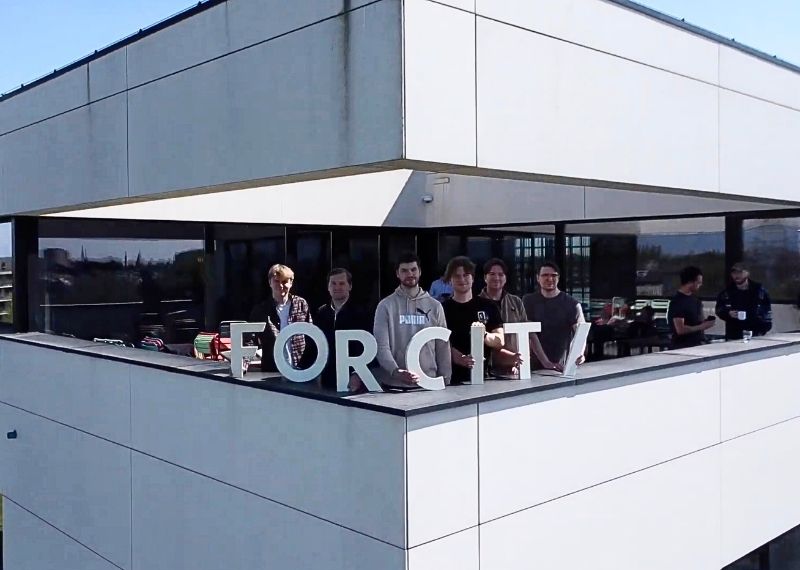Keeping people at work starts with insight: from reacting to preventing
Absenteeism is often treated as a sudden event. But in reality, it’s the outcome of a long, invisible process.

Absenteeism is often treated as a sudden event. But in reality, it’s the outcome of a long, invisible process. A slow build-up of pressure, job misfit, or exhaustion. At Flanders Technology & Innovation, we believe part of the solution lies in shifting focus – from reacting to preventing, from rigid processes to personalized reintegration. And from assumptions to insight.
“If I had to summarize the challenge many HR and prevention teams bring to me, it’s the following one: we’re excellent at case-handling once someone is out, but we’re not yet great at preventing that absence, or making the return genuinely sustainable.”
— Béatrice de Mahieu, Learning Expert at FTI.
Data won’t solve that alone. But when we treat data as a humane instrument, focused on early support, job fit and learning, it becomes a powerful lever for well-being and reintegration.
Five ways data supercharge reintegration
To turn good intentions into real impact, we need better insight. Here’s how data can support a more personalized, effective reintegration process:
- Spot risks early: Use data like shift schedules or workload to identify teams under pressure. Act before issues escalate.
- Predict and prevent long-term absence: Predictive models highlight risk groups. They’re not perfect, but they help target early support where it’s most needed.
- Tailor return-to-work: Design phased, personalized return plans with adjusted roles or learning needs. No more one-size-fits-all.
- Allocate support smartly: Use data to prioritize coaching or accommodations based on job demands and absence patterns.
- Track and improve: Monitor reintegration outcomes and well-being to learn what works and refine your approach over time.
Strategic priority for stakeholders
The good news? Not only technology, but also policy is catching up. In Flanders, tools like the SERV Workability Monitor offer valuable insights into job quality, proving that investing in ‘workable work’ benefits both employees and employers.
That well-being is a critical link to social and economic resilience is also recognized at the European political level, with the EU’s Strategic Framework on Health & Safety at work placing reintegration and proactive support firmly on the agenda. The European Commission also freed up €1.2 billion in funding, pushing for prevention, early intervention, and accessible support throughout the life course.
On top of that, Belgium’s ‘Reintegration 2.0’ reform clarified and tightened roles and timelines.
“The wind is at our backs. With tools like Elli, we now have what we need to act smarter – and finally, the momentum in both policy and mindset. Let’s use it to shift from intention to sustainable action.”
— Béatrice, Learning Expert at FTI.
From conversations to learning-driven reintegration
Keeping people active at work and their reintegration should never be a checkbox exercise. We believe in early, human-centred conversations, with a personalized, data-driven plan. Conversations could focus on medical aspects (with the physician) and on motivation, barriers, and skills (with HR or the manager).
From there, organizations can build phased plans that combine human advice, team dynamics, and data. Maybe that means adapting a current job. Or crafting a new one. Or upskilling with a tailored learning bundle. And always: tracking outcomes to improve the next case.
But which data help you get there? Companies often already have access to valuable, underused information: absenteeism history, team-level stress indicators, pulse surveys, workload patterns, skills gaps analysis and internal mobility data. Combined with aggregated well-being data – for example from wearables or self-assessments – this creates a more complete picture for HR departments.
“My belief is simple: we serve people best when we combine empathy with evidence. That means respecting privacy, acting early on work design, and seeing learning as a key intervention to build confidence and capability. If we do this together with all the people in this workfield we can keep more people well, at work, and proud of their contributions.”
— Béatrice, Learning Expert at FTI.
At FTI, we’re committed to making that combination of empathy and evidence the norm, for every employee, in every work (reintegration) journey.
Want to know more? Reach out – no strings attached.



